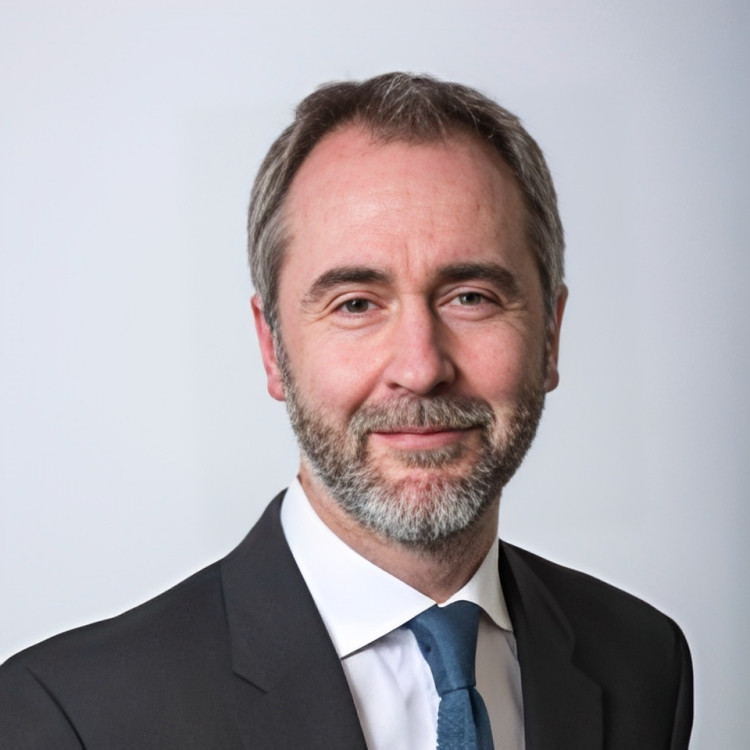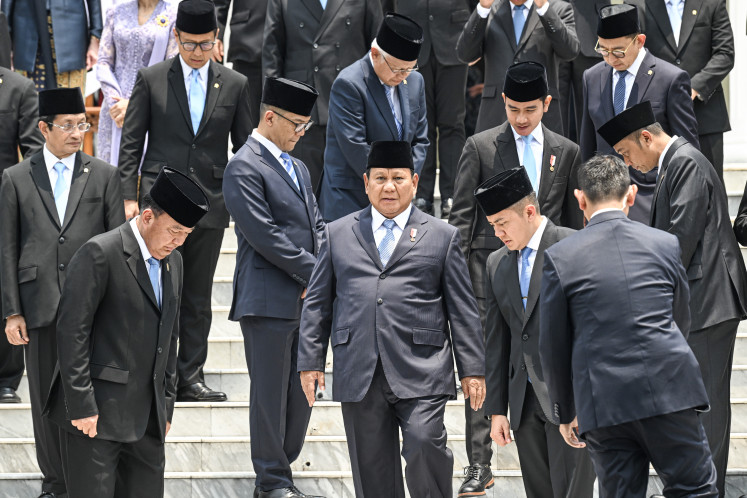Popular Reads
Top Results
Can't find what you're looking for?
View all search resultsPopular Reads
Top Results
Can't find what you're looking for?
View all search resultsKroll aims to shine light on supply chains in Indonesia
Tom Everett Heath, head of forensic investigations and intelligence at Kroll, spoke to The Jakarta Post’s Divya Karyza about the risk and financial advisory firm’s take on risk management trends in Indonesia.
Change text size
Gift Premium Articles
to Anyone
K
roll global head of forensic investigations and intelligence Tom Everett Heath spoke to The Jakarta Post’s Divya Karyza about the risk and financial advisory firm’s take on risk management trends in Indonesia.
Question: What is your experience in investigating risk, infrastructure bottlenecks and sensitive industries in Indonesia?
Answer: I will talk generally about what we do and how Indonesia would fit into that context, as we also just opened an office in Jakarta last year, an important part of the expansion of our local footprint. But we have been doing work in Indonesia for 20 years from our Singapore office and other regional offices.
We help clients, first, make good or better decisions by giving them the information, the intelligence and the analysis, on which they can base those decisions as a way of avoiding risk. Second, we do market entry work, or what we call investigative due diligence, which is about how you understand counterparties and transactions.
The second sort of bucket is the cure. If the first one is prevention, the second one is the cure. Usually, when something is going wrong, something has been lost, often money, sometimes reputation, could be regulatory protection. We do it for what I can at least call the private sector liquidity pools, by which I really mean investors, and they could come in the form of equity funds, hedge funds, sovereign wealth funds, people who are deploying capital for the sake of deploying capital.
I’m not going to discuss in detail our clients, as we take client confidentiality really seriously, [...] but we should make it clear that one of the reasons why we opened our office in Jakarta is a reflection of the demand we have from our global client community, the interest in Indonesia and the appetite to invest in the country, and to want to understand it better, as well as a recognition that we would be doing more and more work for Indonesian clients who want to have somebody locally available.
Kroll has been working in Indonesia for over twenty years. Why establish an office here? Is there a significant rise in demand for your services here?
Yes, there has been a growing interest from [...] people who are wanting to invest in Indonesia or people who are doing things in Indonesia already but want to be better informed about events on the ground.
The second component for the increased demand was a requirement from Indonesian clients who are saying, “We want you to come and do this work for us,” sometimes in Indonesia, sometimes in response to what they’re doing outside of Indonesia.
What do these trends mean for Indonesia’s goal of corruption eradication?
We think this is a pivotal moment. In a lot of emerging market countries, there is a time when there is a limited appetite to address issues related to fraud and corruption head-on. If it is dealt with, it is dealt with in the backrooms, and disputes are resolved but it’s done without rigorous investigation.
There needs to be greater transparency, the use of technical skills to address these things, to focus on the recovery component, and that requires political determination or an agenda that is directly targeted at addressing these issues. When they reach that point, there is a moment of real demand for a real professional experience in this space, which triggers a surge in demand for our services. This is what’s happening in Indonesia.
We’ve seen it in a number of other countries. [...] It feels to us that there is a growing willingness in Indonesia to actually address issues related to avoiding corruption, which makes it a really interesting time for us.
To what extent does Indonesia's corruption risk affect foreign direct investment (FDI) inflows to the country in 2022? What is the projection for 2023?
I have views on this generally, not specifically in Indonesia’s case. It could be that the professional, well-run, ethically robust businesses look at the potential risk of doing business in a country that is regarded as being highly corrupt and they say to themselves, “We’re not going to make investments there, it’s too tricky.” And they leave the landscape open to the companies that have the lowest standards and who are willing to indulge in corruption. And what you end up with, potentially, you turn that perception into reality, you’re driving out good behavior rather than encouraging the good behavior.
So, we can have situations where you have countries with a high perception of corruption are still attracting a lot of FDI […] and [investors] will be more robust in the process they go in, and over time, that will lead to an improvement in the perception. The longer time you have of, I got to call it the clean businesses, doing good in the country, the greater the likelihood that the perception of corruption will fall if they have found a way to do clean business.
Indonesia experienced a massive increase in metal and metal goods investments last year on the back of soaring commodity prices. There was a nickel fraud case on a commodity trader recently. How do you see the fraud risks in the global and local commodity markets in the near future?
Broadly speaking, the extractive industry has challenges in this area. Historically, there is a number of examples that we could give of those problems appearing. Fundamentally, the sector is particularly exposed to issues of corruption and fraud. It’s just the nature of the industry. You are dealing with a very high monetization of the private sector that is running on a long-term basis, surrounded by sovereignty and political issues.
In the next layer down you get the financing component, which is problematic because you get a bunch of really complicated structures to do with long-term project financing, off-take structures, guarantees put in place – all of this creates an environment, or an area, that is particularly hard to maintain integrity within, not least because of the value and the opportunity.
I think there is a lack of rigorous investigative work into the structure and nature of supply chains and related parties within their supply chains and the way in which those related parties are both providing input and facilities. So what we do is to give companies an edge by having a better understanding of that and investigating issues when they arise.










